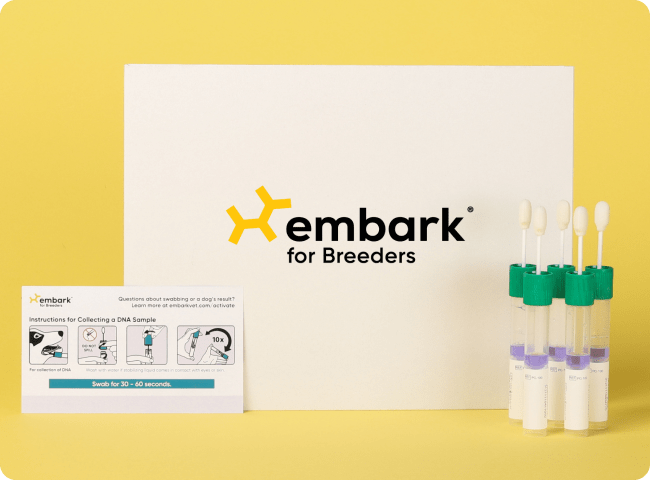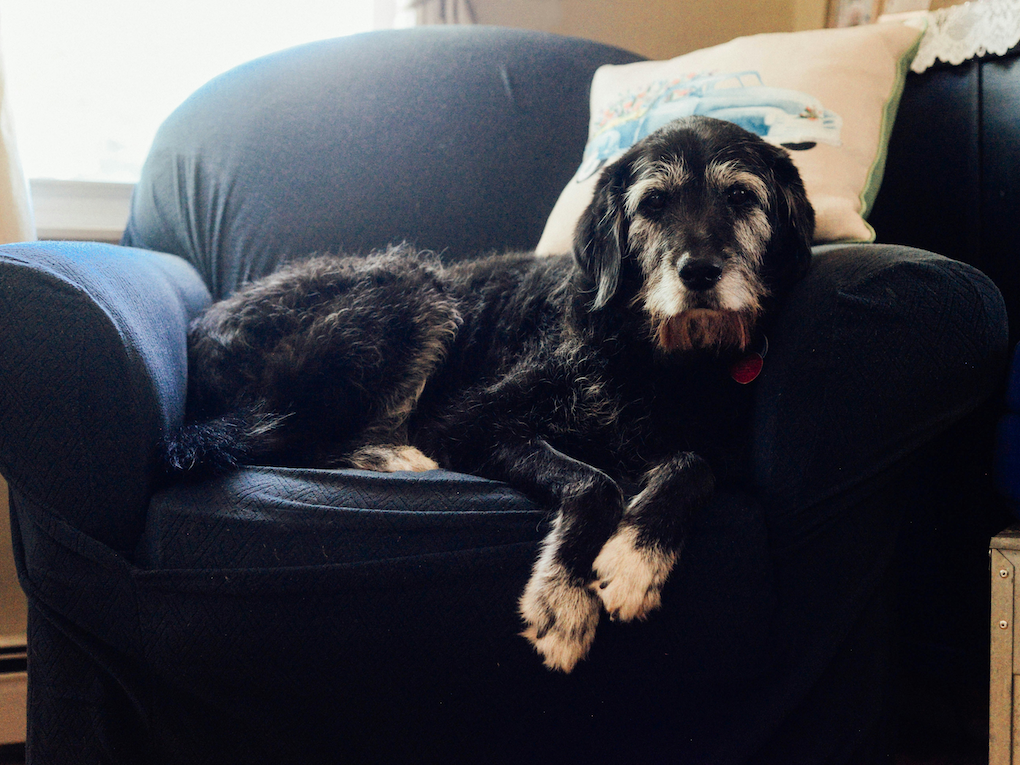The holidays are coming, and it’s natural for dog lovers to want to include their canine companions in the festivities. But as hard as it can be to resist those puppy-dog eyes when they’re gazing longingly at the turkey, stuffing, and sweet potatoes on the table, those tasty treats may not be the best for a dog’s health.
Dogs can eat plain turkey and other popular Thanksgiving foods, but in moderation and usually not in the same form as humans enjoy. Read on to learn what pups can eat over the holidays, and how they should eat it to stay happy and healthy.
Can dogs eat turkey?

According to some scientists, sharing lean meat has been part of the human-dog bond since domestication began. But we don’t eat like our ancestors, and our Thanksgiving turkeys contain add-ons that a dog’s digestive system can’t handle.
Even a “plain” Thanksgiving turkey is covered in butter, oil, and seasonings, and filled with stuffing. Fatty foods, including prepared turkey and especially turkey skin, can cause dogs to develop a potentially dangerous condition called pancreatitis.
Just like in humans, a dog’s pancreas produces enzymes that help with digestion. Those enzymes are supposed to stay inactive until they reach the small intestine, but foods with high-fat content can disrupt the normal balance and can lead to activating them prematurely.
When this happens, the pancreatic enzymes start to digest the tissue of the pancreas itself. This causes the pancreas to become inflamed and can lead to symptoms like nausea, poor appetite, vomiting, abdominal pain, and diarrhea. This condition can become very serious and if a pet is showing any of these signs after sharing parts of a meal or getting into the trash, they should see a veterinarian.
White meat turkey isn’t high in fat and is usually okay in small quantities, as long as it’s free of skin and seasonings.
Can dogs have turkey bones?
Despite what mainstream media would have people believe, dogs should not gnaw on animal bones. The cooking process draws the moisture out of bones, especially poultry bones, leaving them brittle. When a dog chews on a bone, splinters can break off and cause serious damage, such as:
- Cuts on the tongue or gums
- Choking
- Internal bleeding from pierced organs
- Obstructions in the digestive tract
- Constipation due to stuck bone fragments
- Peritonitis, an abdominal infection caused by perforations in the stomach or intestines
Instead of bones, offer the dog a safe chew treat, preferably one with the Veterinary Oral Health Council seal of acceptance.
Can dogs eat stuffing?
Every family has a different idea of what should go into Thanksgiving stuffing. Most start with breadcrumbs of some kind and add butter, spices, herbs, celery, and onion. Some people add sausage or chestnuts.
The bread itself isn’t bad for dogs. Some people believe that it’s “unnatural,” citing the almost pure meat diet of dogs’ wolfish ancestors, but dogs have been eating bread for as long as they’ve been pets.
The problem with stuffing isn’t the bread, but everything else that people put in it. Onions and garlic are particularly problematic.
Both ingredients belong to a food family called alliums, which can be toxic to dogs. Concentrated onions and garlic, like onion soup mix and garlic powder, are more dangerous than fresh cooked alliums.
The butter in stuffing is also problematic since it can contribute to gastrointestinal upset and/or pancreatitis. It’s best to keep dogs away from this Thanksgiving dish altogether.
Can dogs eat sweet potatoes?

Sweet potatoes are a delicious source of many nutrients including calcium, iron, potassium, and vitamin C. But like most dog-safe taste treats, less is more.
As nutritious as sweet potatoes are, they also have a high glycemic load. When dogs digest sweet potato and other foods with a high glycemic load, their blood sugar levels rise quickly. The dog’s body then releases high quantities of insulin to break down that sugar.
These blood sugar and insulin spikes are particularly dangerous for diabetic dogs. Even healthy dogs shouldn’t have high glycemic load foods too often, as blood sugar spikes can increase the risk of diabetes, cancer, and thyroid problems.
Sweet potatoes are also very high in oxalates which can be problematic for dogs with a history of certain types of urinary stones.
Thanksgiving happens only once a year. A bite or two of sweet potato on that special occasion is unlikely to cause a non-diabetic dog significant harm.
A few words of caution, however. Be sure that the dog is only getting plain cooked sweet potato. Don’t offer anything with marshmallows, glaze, or other flavoring. Never offer raw sweet potato, which can upset a dog’s stomach.
Can dogs eat potatoes?
Regular potatoes might seem more sugar-safe than sweet potatoes, but don’t be fooled. They also have a high glycemic load and cause blood sugar spikes. Avoid them if your dog is diabetic.
For non-diabetic dogs, cooked potatoes are neither good nor bad. They don’t have any particular benefits, but aren’t toxic either.
In very small portions, potatoes can be tasty treats, but only with the skin removed and with no added ingredients or seasonings. Most mashed potato dishes contain butter and salt, neither of which are healthy for dogs. Only share mashed potatoes before mixing in those extras.
Also, as with sweet potatoes, regular potatoes should be thoroughly cooked before they become dog snacks. Raw potatoes contain the chemicals solanine, which is toxic to dogs.
Can dogs eat cranberries and cranberry sauce?
Cranberries are nutrient-dense foods rich in vitamin C, potassium, and fiber. They offer multiple health benefits for dogs, including:
- Reduced risk of heart disease, stroke, and high blood pressure
- Reduced risk of diabetes
- Better bladder health
- Improved dental health with reduced tartar and plaque
Dogs can eat cranberries raw, cooked, or dried. Once cooked into a sauce, though, they’re off-limits. Cranberry sauce is high in refined sugar, which can cause insulin and blood sugar spikes just like other sweet foods.
It’s also important to only give a dog a few cranberries at a time. Like many otherwise healthy foods, cranberries can cause stomach upset if a dog eats too many at once.
What other Thanksgiving foods can dogs eat?
So far, the Thanksgiving foods that are greenlighted for canine consumption are plain white meat turkey and cranberries, but not cranberry sauce. Potatoes or sweet potatoes can also be on the plate if the dog isn’t diabetic, but less is more. Remember that treats should never make up more than 10% of a pet’s diet.
Pumpkin

Plain pumpkin is healthy and delicious for dogs. It’s rich in vitamins A, E, and C, as well as potassium and iron. Plus, its high fiber content aids digestion.
Canned pureed pumpkin is easily shareable with dogs, but make sure there’s nothing but pumpkin in the can. Some brands premix their pumpkin with sugar or spices that aren’t healthy for canines. Look for cans labeled “100% pure pumpkin” to be sure what’s inside is pup-safe.
Green beans
Green beans are one of the healthiest vegetables a dog can eat. They’re rich in vitamins A, B6, C, and K. They’re also high in protein, calcium, iron, and fiber. Plus, green beans are low in carbohydrates, so they won’t cause blood sugar spikes like some other Thanksgiving treats.
Dogs can eat plain green beans in just about any form including raw, cooked, or canned. Just make sure the beans contain no added salt, oils, spices, or other ingredients. Keep the green bean casserole away from the pup!
Also, before feeding a dog green beans, make sure to chop them up. An entire large green bean can cause a dog to choke.
Peas and carrots
Some Thanksgiving tables include bowls of peas and carrots. This healthy option is good for both the humans at the table and the canines waiting by the table.
Peas are rich in vitamins that can help a dog’s digestion, keep his weight under control, and support heart health. They’re also rich in vitamin K, which is important for healthy bones. Small amounts of frozen and fresh peas are both healthy. Canned peas can be okay, but only if there’s no added sodium.
Carrots, raw or cooked, are also healthy Thanksgiving treats for dogs. They’re low in calories and rich in nutrients like vitamin A, fiber, and potassium. When raw, they also make good chew treats. Just be sure to cut them into bite-size chunks to prevent choking.
As always, make sure the dog only gets plain peas and carrots. If they’re already cooked on the table, ask if there’s any added salt or spices.
A treat of their own
For dogs, the best Thanksgiving food is always a treat made just for them. Whether the dog will be celebrating at home or on the road with the family, come prepared with some dog-friendly Thanksgiving recipes that are safe and delicious.
Keeping dogs happy at Thanksgiving
Having healthy, pup-safe food available is just one way pet parents can share the holidays with their dogs. It’s also important to make sure the dog is comfortable during the celebration.
Dogs can sit by the table, but only if they know how to behave and not beg. Begging dogs can make friends and family uncomfortable, which can lead to scolding and unhappiness all around. If all dog owners who are bringing their dogs to their Thanksgiving celebration take some time before the holiday to teach their dogs how to sit quietly while humans are eating, it can make for a more pleasant meal.
Finally, if the holiday will involve travel, come prepared. Read up on traveling with dogs and make sure both human and canine travelers are ready. When it comes to travel, socialization, and food, a safe and secure dog is a happy dog.




